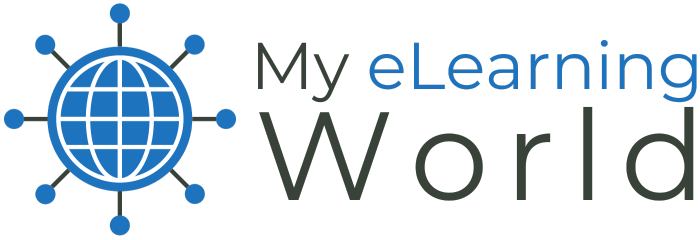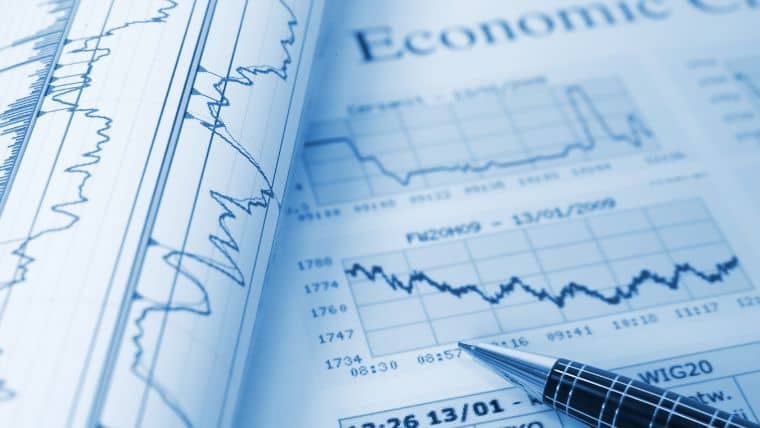Understanding economics can help you make more informed decisions in your personal life, better understand the issues affecting society and the economy, and give you the critical thinking skills to tackle real-world problems.
Whether you want to study economics online to boost your career prospects or simply satisfy your curiosity, there’s an online course for you. Online courses offer the flexibility to study at your own pace and around your commitments. They also tend to be more affordable than traditional courses.
I’ve reviewed and ranked the best online economics courses based on a number of important factors, including the instructor’s credentials, course content, cost, and student satisfaction (click here to learn about our entire Editorial Process & Methodology for product reviews).
What are the Best Online Economics Courses?
Here are my top picks for the best economics classes you can take online…
1. Econ 101: The Complete Intro to Economics For Beginners (Udemy)
 Econ 101: The Complete Intro to Economics For Beginners (Udemy)
Econ 101: The Complete Intro to Economics For Beginners (Udemy)
Get an in-depth primer on the basics of economics with this insightful, engaging online class.
Price
Regularly $49.99 but sometimes goes on sale (see our Udemy pricing guide for more info)
Duration
4.5 hours of on-demand Video
Ever wondered what economics is about? How does the world of finance work? How does economics come into play during business transactions?
Well, Chris Benjamin takes you on a journey into the world of economics. From the basic principles of ‘limited resources, unlimited wants, and ‘scarcity’ to macroeconomics and microeconomics, all are discussed in this 4.5-hour course.
Furthermore, this course also highlights the different structures of industries, i.e., monopolies and oligopolies, and how these industries tend to be different in their behaviors and pricing decisions. Interest rates and recession are also discussed, and their concepts are clarified.
In addition, this course also provides 2 downloadable resources and an article, along with a certificate when the course is completed.
What You Will Learn
- What are economics and its fundamentals
- The concept of optimization
- What affects demand and supply
- What are macroeconomics and microeconomics
- The concept of Game Theory
- Different types of competition in different industries
- Recession and Interest rate
- The economic forces working around you in real life
2. Macroeconomics: A Comprehensive Economics Course (Udemy)
 Macroeconomics: A Comprehensive Economics Course (Udemy)
Macroeconomics: A Comprehensive Economics Course (Udemy)
This course is tailored to broaden the perspectives of anyone interested in macroeconomics, enhancing your understanding of the complex world around you.
Price
Regularly $84.99 for a lifetime access with a 30-day money-back guarantee
Duration
13 hours of on-demand video lectures.
Take a deep dive into the world of macroeconomics with this popular online course. With 13 hours chunked into 95 video lessons, you will learn everything there is to know about the basics of economics, money, and fiscal policies. You will also learn concepts like aggregate demand and supply, macroeconomic equilibrium, and economic growth.
Whether you’re a professional, a student, or an aspiring economist, this course will take you from the basics and teach you all the basic theories and concepts about macroeconomics. By the end of this course, you will get a better understanding of the world around you, what’s going on in the news, and how new policies can affect you.
This course is for anyone who wants to learn about economics. But it is also a basic course for people who want to grasp the basics of economics before going on to advanced levels like pursuing a career in economics research or becoming an economist!
What You Will Learn
- Basics of Macroeconomics
- Gross National Product and Other Economic Measures
- Aggregate Demand and Aggregate Supply
- Macroeconomic Equilibrium
- Low Unemployment
- Low and Stable Rate of Inflation
- Economic Growth
- Equity in the Distribution of Income
- Fiscal and Monetary Policy
- Supply-Side Policies
3. Microeconomics: A Comprehensive Economics Course (Udemy)
 Microeconomics: A Comprehensive Economics Course (Udemy)
Microeconomics: A Comprehensive Economics Course (Udemy)
This microeconomics course equips you with a comprehensive understanding of core principles, market dynamics, and the economic underpinnings of global politics, making it an essential companion for any introductory economics class.
Price
Regularly $89.99 for a lifetime access with a 30-day money-back guarantee
Duration
8.5 hours of on-demand video lectures.
This course is a basic step into the world of economics. It takes you through microeconomics, including the theories of demand and supply, elasticities, and market failure. This 8.5-hour course is chunked into 62 lectures, with each lecture crisply covering the topic on hand.
This course will take you from knowing nothing about economics to mastering the core microeconomics concept. If you’re a beginner, this is the first step before you can learn about macroeconomics and other advanced economics courses.
This course is for you if you want to gain an initial understanding of economics. This is also a great opportunity for you to assess whether economics is something that you’d be interested in pursuing as a career.
What You Will Learn
- Introduction to Economics
- Demand and Supply
- Market Equilibrium
- Elasticities
- Government Intervention
- Market Failure
4. Thinking like an Economist: A Guide to Rational Decision Making (The Great Courses)
Price
Subscribe & Stream 500+ Great Courses Starting at $13/month (Free 14-Day Trial)
Duration
12 lectures, each about 31 minutes
Today, economics is a major part of our lives. Not only does it exist in monetary transactions, but also in places we might not even be able to fathom.
This course, taught by Randall Bartlett, sheds light on how and where economics is present in our daily lives.
It focuses on how minute changes in behaviors and perceptions of an individual daily can help make effective judgments leading to cost and time-saving along with optimization of outcomes.
Moreover, the professor lays out six concepts in his tool kit. These, along with his diverse scale of examples from around the world, help one understand the implication of every decision he makes from an economic point of view and how maximum utility can be derived from each decision.
What You Will Learn
- How economics exist in our daily lives
- How to use tools that help us make the best choices
- How the concepts learned in books can be applied to us
- The concept of rationality, marginal analysis, and optimization
- The economic implication of events that took place in real life
- How information can be used to manipulate other people’s decisions
- The concepts of real VS nominal and present VS future value
5. Capitalism vs. Socialism: Comparing Economic Systems (The Great Courses)
Price
Subscribe & Stream 500+ Great Courses Starting at $13/month (Free 14-Day Trial)
Duration
24 lectures, each about 30 minutes
The debate about different economic systems is still crucial today. Economists are still questioning the tradeoff between freedom from capitalism and the security derived from socialism worldwide. However, it is important to note both these economies have pros and cons.
So, in this course, Edward F. Stuart delves into this argument in detail. With him specializing in comparative economics and his travel exposure, this debate also takes a personal dimension. Different measures of success are discussed, like inflation, employment and GDP, along with the implications of these metrics.
Furthermore, this course will tour different theories, their origin, and how they developed, quoting various examples of famous personalities and events that shaped economic thought today.
What You Will Learn
- The different kinds of economies and how they developed
- Equilibrium of freedom versus security
- Some of the important metrics to measure the success of economies
- Do economies with good metrics indicate a ‘good’ economy
- The origin of capitalism and its drawbacks
- The contradictions that exist in economic systems
- How different types of economies fared during the specific historic period
- The concept of comparative economics
6. Introduction to Economic Theories (Coursera)
Price
Get started free (paid upgrades available)
Duration
8 weeks (approximately 41 hours)
Economies are difficult to understand sometimes. It is concerning when an economic crisis occurs as they lead to a country being worse off in terms of employment, inflation, and wages. However, these crises are not easy to predict.
This course, taught mainly by Irene van Staveren, introduces 4 theories: Social Economics, Institutional Economics, Post Keynesian Economics, and Neoclassical Economics. She expands on these theories, which help understand the thought process of economists from several different perceptions. These also help us understand why economic crises are not easily predictable.
With the pluralist viewpoint of economics being taught, theories and methods are given importance and paired with tables, equations, charts, and diagrams to help understand the concepts more effectively.
Furthermore, professors from the school of business help better understand the perspective of an economy’s actors, like governments and firms.
A flexible deadline makes this course easy to follow and you also receive certification upon completion.
What You Will Learn
- The different economic viewpoints
- How economic thought develops
- Understanding the basic economic calculations
- 4 different economic theories
- The pluralist perspective of economics
- The actor’s perspective
- Why is it so hard to foresee an economic crisis
7. Economics and Society (Masterclass)
Price
Masterclass pricing is $10/month billed annually for access to all Masterclass courses
Duration
22 video lessons (3 hours 56 minutes)
Economics deals with a lot of irrelevant and fake news. Knowing how to understand which news you come across is appropriate, and influences society is important.
With the help of Nobel- prize winner Paul Krugman, this course aims to develop your analytical and critical thinking skills. It intends to help you think like an economist and understand the world around you better, as only then will you be able to bring change in this world.
You are taken into the world of economics through this course, with the focus being on building a thorough understanding of the subject and its principles. Moreover, you will also be introduced to different theories and how they have affected the practical world, the effects of rapid globalization, problems in healthcare systems, their solutions, and other critical social issues.
What You Will Learn
- What does economics deal with, and how to think like an economist
- The fundamental principles of economics
- How economic thought progressed
- What is macroeconomics
- Inequality existing in societies today and how the gap is increasing
- Economic crisis and its solutions
- Healthcare problems and their solutions
- What exactly is tax, and how it works
- How the hyper-globalized world works
8. Macroeconomics for a Sustainable Planet (edX)
Price
Get started free (paid upgrades available)
Duration
13 weeks (2-4 hours weekly)
We often come across concepts of inflation, unemployment, globalization, and fiscal deficits in our economic textbooks. However, these concepts and their real-life implications are important to understand to survive on a planet that is becoming increasingly fragile.
Under the guidance of Jeffrey Sachs, a senior U.N. advisor, and Felipe Larraín, a former Minister of Finance in Chile, a special emphasis on sustainable development is given in this course. It deals with rapid globalization and macroeconomics in a world so interdependent. While building the concepts of macroeconomics, the course aims to enlighten people about economic indicators, their measurement, and the problems existing in the current world.
It mostly hopes to help anyone taking this course grasp how economic growth can be attained sustainably in a world that is on the verge of collapse.
What You Will Learn
- Concept of macroeconomics
- How to measure well-being in an economy
- How the Labor Markets are changing
- Role of Central banks and the concept of money
- How do banks affect an economy and their role in an economic crisis
- What are some of the economic players in society and their implications
- Effect of globalization
- How can growth become sustainable
9. Economics of Money and Banking (Coursera)
Price
Get started free (paid upgrades available)
Duration
13 weeks (approximately 33 hours)
As the institutions in the monetary system progress, there is a need for evolution in theories and analytical approaches that govern the understanding of this system.
This course aims to provide a starting point for developing economic thought. This is done using existing theories of economics and developing them to match the current world’s requirements. To do this, Perry G Mehrling provides us with an in-depth analysis of banks and their role in society in the present as well as historically. The financial crisis of 2007-2008 is given special attention, along with the role of banks in this crisis.
Additionally, the growth of international banking and how it differs from normal banking is also discussed, with derivatives being examined in detail as well.
What You Will Learn
- Crisis of 2007-2008
- Key analytical tools in economics
- Banks as a clearing house and a market maker
- Concept of international banking and how it works in our system
- How do derivatives work in the world today and their importance to the financial world globally
10. Behavioral Finance (Coursera)
Price
Get started free (paid upgrades available)
Duration
3 weeks (approximately 5 hours)
Every day, we make numerous decisions, from what to eat to when to sleep. These decisions are made by our subconscious mind, which makes our choices very predictable. However, these choices tend to lead to errors sometimes, which are also foreseeable.
Similarly, behavioral finance deals with such subconscious financial decisions made on our part and their errors. These decisions are likely to be taken due to some bias present within ourselves. Thus, this course is designed by Emma Rasiel to assist us in understanding the thought process behind financial decisions. It aims to help us eliminate such mistakes, leading to better investing, saving, and spending decisions.
What You Will Learn
- What is the economic model used to understand consumer choices
- How does the economic model assumes people behave and how they behave
- How does a human mind work when making decisions
- How to improve financial decisions to avoid expected errors
11. Economics: Consumer Demand (edX)
Price
Get started free (paid upgrades available)
Duration
4 weeks (4-6 hours weekly)
Demand essentially means how much of a product is required by an individual at a particular price. It is a key concept that needs to be understood if you want to know how markets function.
To understand demand, it is important to understand several factors that influence it. Thus, John Korsak’s focus in this course is to help you get familiar with the concept of demand and its determinants. It elaborates on the concept of elasticity, measuring and incorporating policy changes into demand, and how consumers make decisions.
What You Will Learn
- What is Demand
- The relationship between quantity demanded and price
- The determinants of demand
- The concept of elasticity
- What different policies and strategies by businesses influence consumer demand
- Relationship between changing conditions of the markets and elasticity of demand
Final Thoughts
If you’re someone who’s interested in studying economics, there are lots of great courses you can take online.
Whether you’re looking to learn about macroeconomics or microeconomics, game theory, or any other facet of economics, there’s an online course out there for you.
So, what’s the best online economics course for you? It really depends on your individual interests and goals. But I hope that this list has given you some ideas about where to start your search.
Have any questions about our guide to the best online economics courses? Let us know by leaving a comment below.

